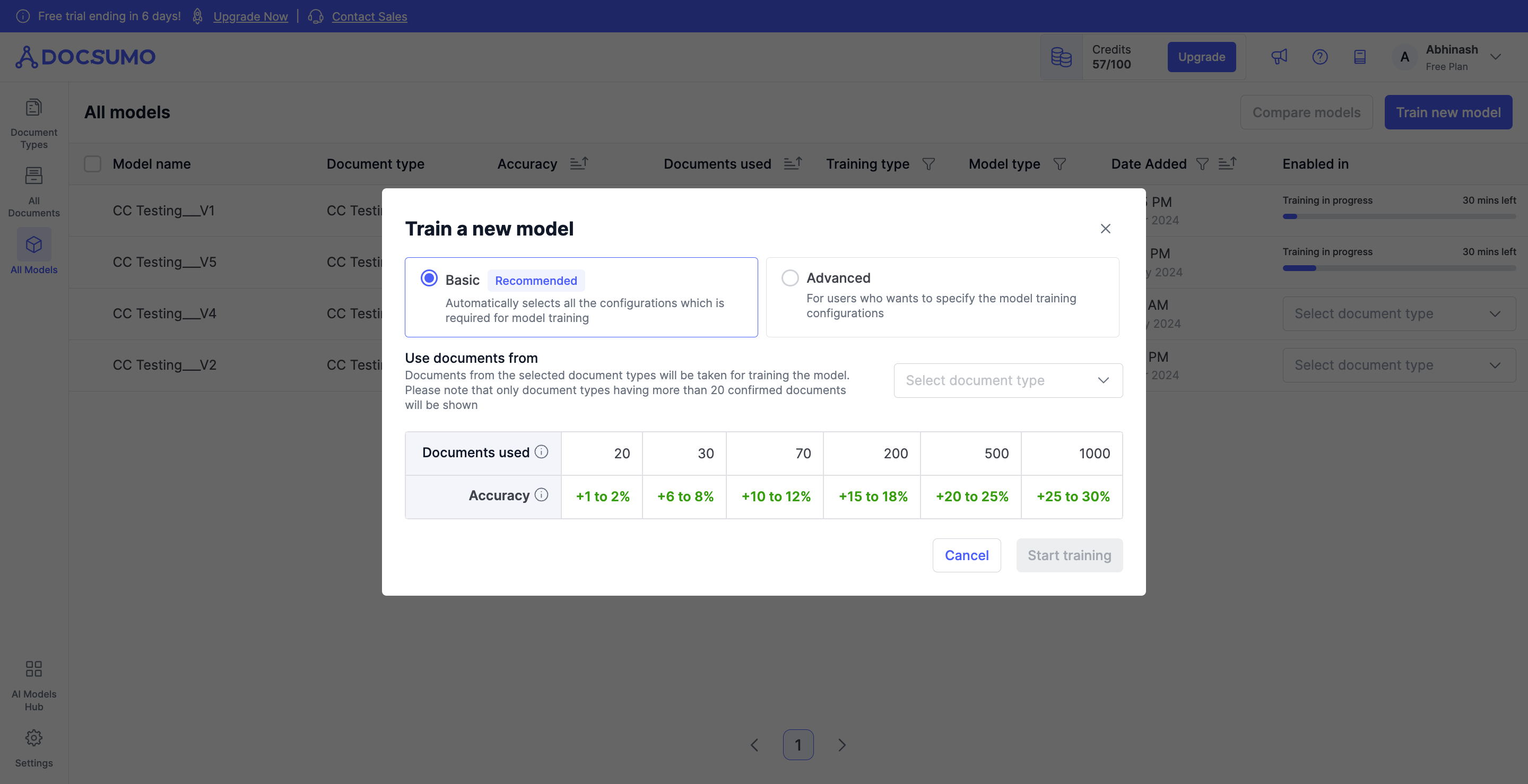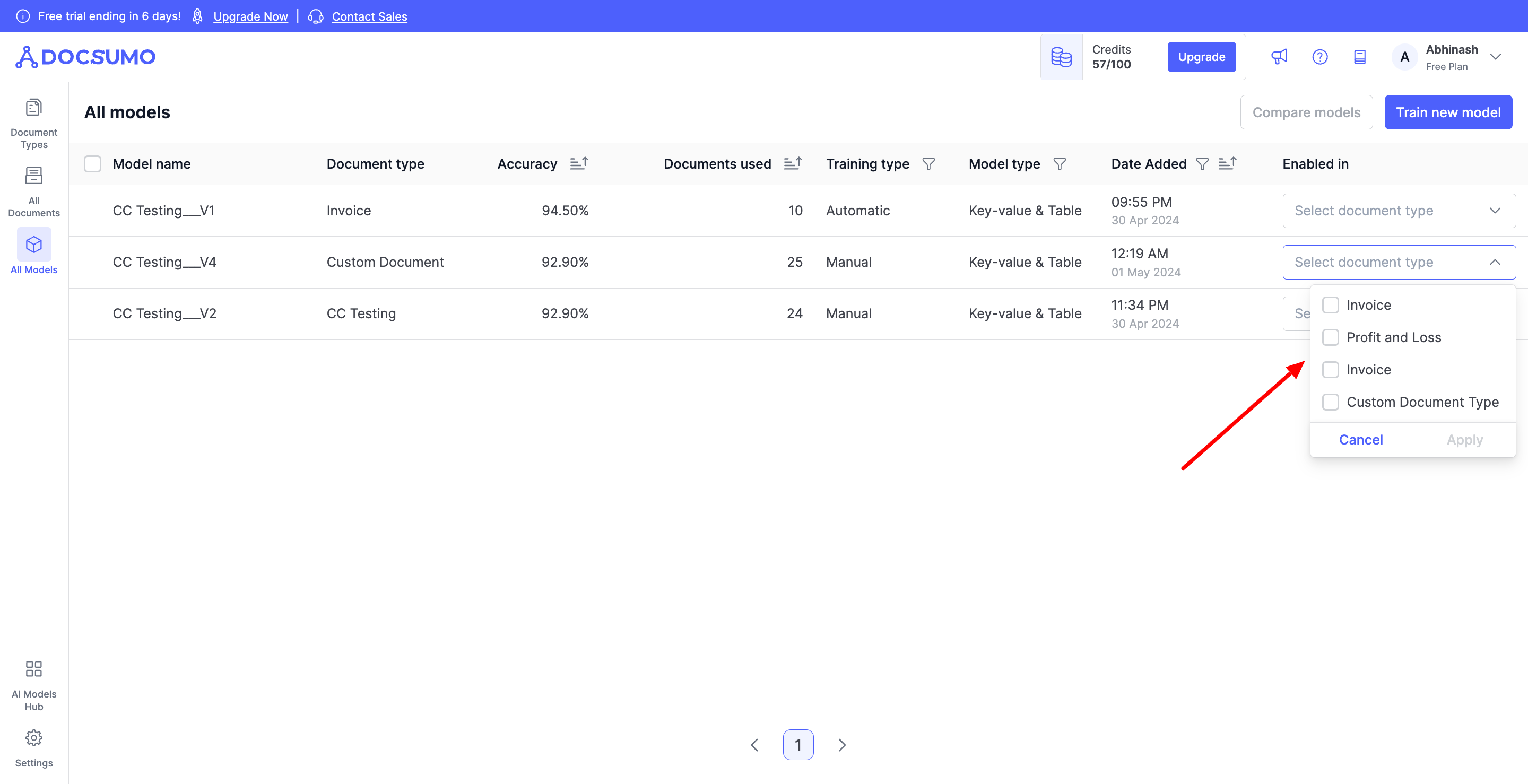Training a Model
Training a model enables you to customise data extraction and streamline document processing. This support document provides a step-by-step guide on how to train a model using Docsumo's intuitive interface. By following these instructions, you can create a custom model tailored to your specific document type and improve the accuracy and efficiency of data extraction.
Model training can be done in the document type page of the respective document type as well as in the All Models page. Click here to learn about model training in document type environment.
Training a model in All Models Page
Step 1. Access the All Models Page
-
Log in to your Docsumo account using your credentials.
-
On the left side navigation bar, you will find "All Models", click on the "All Models" option. This will direct you to the All Models page.

Step 2. Initiate Model Training
You will need a minimum of 20 confirmed documents to train a model.

- On the All Models page, click the "Train New model" button. This will open a popup window to begin the model training process.
- Select the type of manual training. Based on the selected option manual training will initiate.
Step 3: Configure Advanced Manual training

- Use document from option to select the Document type you wish to train the model for. This choice ensures that the model is optimized for accurate data extraction from the selected document type.
- Select the Training Dataset for the training from Select Confirmed Documents. You have two options:
- All Confirmed documents: Choose this option to use all the documents previously confirmed in your account for the selected document type as the training dataset. This helps the model learn from existing data.
- Select confirmed documents after: If you want to focus on recent data for training, select this option and specify the Date post which you wish to use the confirmed documents for new training
- Choose the Model Type you wish to train. Docsumo offers multiple model options based on the requirements of your chosen document type.
- Type of models
- Key-Value model: Trains a custom model only on key value fields of the document.
- Table Model: Trains a custom model on the table data of the document.
- Key-Value and Table model: Trains a custom model on key value and table data of the document
- COA classification: This option is only available if the document type selected is Profit & loss or balance sheet. You can train your own custom COA, after approving 20 document of this type.
- Type of models
- Once you've chosen the document type and model type, it's time to configure Transfer Learning. Transfer learning allows you to train your manual model on top of the selected model from the Transfer Learning option
Step 4. Enabling the Model to the Document Type
-
Once the model training is successfully completed, you will see the trained model listed on the Models & Training page. You can see the training report along with it, for a more detailed report, click on the model name.
-
If the model accuracy is as per your expectations you can use this model for data extraction, enable it to the specific Document type you want to use it for. And if the accuracy reports are not as per your expectations you can choose to train a model with a bigger data set.
-
Click on the "Enabled to" dropdown for the model under consideration and select the Document type from the dropdown menu to link the model.

Enabling the model from All Models page
By following the step-by-step instructions outlined in this support document, you can optimise your document processing accuracy. Should you have any questions or encounter any issues during the process, feel free reach out to us at [email protected], and we'll be more than happy to help you.
Updated 3 months ago
